A collaboration between Association FOSA, Conservation Allies, and Madagascar National Parks
The magnificent dry forests and vital watersheds of Madagascar’s Ankarafantsika National Park are under increasing pressure. Rapid population growth, significantly outpacing the national average, is a key driver of forest degradation around the Park, and an average 2.0% annual deforestation rate inside Ankarafantsika National Park. Over 135,000 residents, including at least 32,000 women of reproductive age, live in the 12 communes bordering the park. These communities face severe challenges, with the nearest health centers often located 10-30 kilometers away. This lack of access, combined with limited education, contributes to early unplanned pregnancies and negative socio-economic impacts. These issues not only undermine community well-being but also directly jeopardize the conservation of this critical protected area.
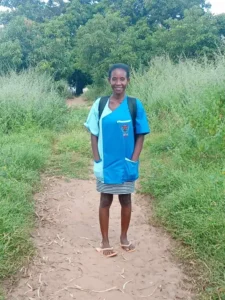
Project Overview
In response to this urgent need, Association FOSA, in partnership with Conservation Allies and Madagascar National Parks (MNP), launched the Family Planning Outreach Project on October 15, 2024. The first pilot year of the initiative is funded by Conservation Allies (over $100,000 USD) and is strategically designed to deliver accessible reproductive health services, specifically family planning education and contraceptive services, to communities around the park. By empowering women to make informed reproductive choices, the project aims to reduce demographic pressure, improve maternal health, build household resilience, and ultimately strengthen conservation efforts in the Ankarafantsika landscape.
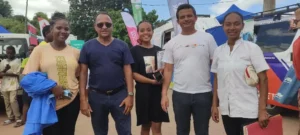
Key Strategy: Community Health Brigades
The project utilizes mobile healthcare providers, known as Community Health Brigades (CHBs), as a cornerstone of its strategy. Initially planned for four providers, this was quickly scaled to six highly motivated nurses based on initial field assessments – four experienced former Marie Stopes providers and two newly graduated local paramedics ensuring sustainability. These six CHBs are strategically deployed in pairs to cover the southern (Ambatoboeny) and northern (Marovoay) sectors, maximizing reach and operational efficiency in difficult-to-access areas.
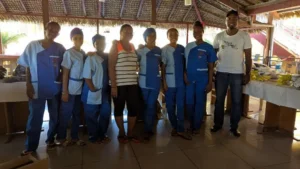
6 Dedicated healthcare providers working in mobile Community Health Brigades
95 Distinct sites reached during initial project phase
Project Progress and Milestones
Significant milestones have already been achieved, demonstrating rapid progress and strong operational foundations. Crucially, a four-party Memorandum of Understanding (MoU) was signed in March 2025 between FOSA, the Ministry of Public Health, and the Boeny Regional Health Director. This landmark agreement formally integrates the project within national health systems, guaranteeing government supervision, coordination, support, training, and commodity flow.
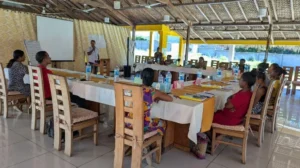
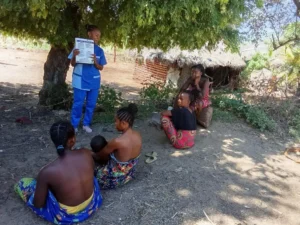
Following the MoU, the six CHBs underwent intensive training from March 30 – April 5,2025, covering essential skills like counseling, infection prevention, and long-acting reversible contraceptive techniques, including practical sessions in clinics. With trained providers and a functioning supply chain, service delivery commenced immediately.
Early Results
Early results (March – April 2025) showcase the project’s effectiveness. In just two months, CHB teams logged 184 work-days and delivered services in 95 distinct sites across multiple communes. Most importantly, 617 women received an IUD or implant during this initial phase. Long-acting reversible contraceptive uptake nearly doubled from 212 insertions in March to 405 in April, with implants accounting for a significant 77% of all insertions (475 vs 142 IUDs).
Key Achievements (March-April 2025):
- 184 work-days by Community Health Brigades
- Services delivered at 95 distinct sites
- 617 women received long-acting reversible contraceptives
- 77% uptake in implant insertions
- Doubled service delivery from March to April
Strategic Approach and Community Outreach
The project strategically prioritizes communities closest to the park and those with the least access to healthcare. Strong collaboration with local authorities, community leaders, and existing partners like Planet Madagascar and Durrell Wildlife is leveraged for identifying vulnerable populations, planning routes, and integrating services.
The project’s approach involves not just clinical services but also comprehensive education and community engagement. Health education sessions are conducted in various settings, from community gatherings under trees to small group discussions in homes. This integrated approach ensures that communities understand both the health benefits and the environmental connections of family planning.
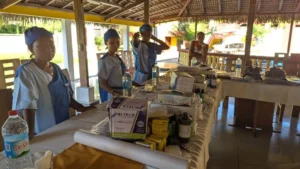
Looking Ahead: Future Plans and Target Impact
Looking ahead, the CHBs will continue delivering services 20 days per month, expanding reach into more remote hamlets and remaining villages. Regular MoH supervision will ensure service quality. The project aims to serve 6,000 women with long-acting reversible contraceptive methods over 10 months, representing approximately 18.75% of the estimated women of reproductive age in the region. Integrated education campaigns will reach an additional 20,000 residents by year-end, promoting health, nutrition, and natural resource stewardship.
Investment Opportunity
This project offers a high-impact investment opportunity. The momentum built through official government partnership, a skilled workforce, robust logistics, and demonstrated early success with long-acting reversible contraceptive uptake positions the project for sustained impact.
Investing in this initiative directly contributes to empowering women, improving community health, and protecting a globally significant biodiversity hotspot – a powerful model for integrated conservation and development.
Project Budget Overview
The Family Planning Outreach Project strategically focuses on the following categories:
- Personnel and service provision fees (35%): Prestation fees for CHBs members and project coordination
- Transportation & Logistics (15%): Vehicle maintenance, fuel, and field operations
- Medical Supplies (35%): Contraceptive commodities and clinical supplies
- Training & Capacity Building (10%): Continuous education and skill development
- Administrative Costs and M&E (5%): Office operations, communications, reporting and data quality
Conclusion: A Model for Integrated Development
The Family Planning Outreach Project represents a holistic approach to addressing interconnected challenges of health access, population growth, and environmental conservation. By enhancing reproductive health services and empowering women through family planning, the project directly contributes to relieving pressure on the fragile ecosystems of Ankarafantsika National Park.
Early success indicators demonstrate both the feasibility and effectiveness of this approach. The significant uptake of services, strong government partnership, and community acceptance all point to a sustainable model that can be expanded and replicated in other conservation-critical areas.
Your investment in this initiative will help scale this proven model to reach more communities, train additional healthcare providers, and ultimately protect one of Madagascar’s most important biodiversity treasures while improving human wellbeing.
By Association FOSA, Conservation Allies, and Madagascar National Parks.
For more information, please contact: info@conservationallies.org


